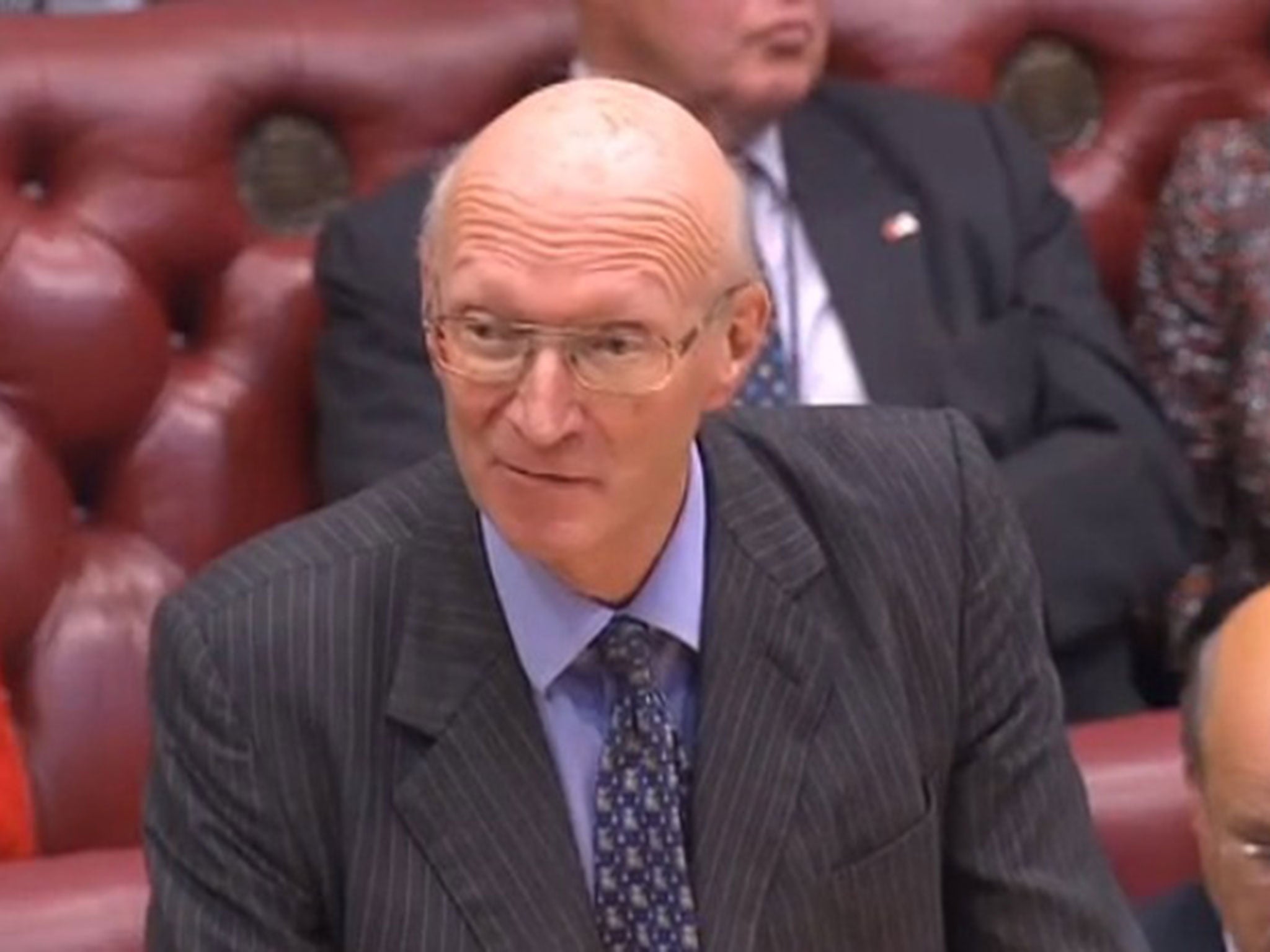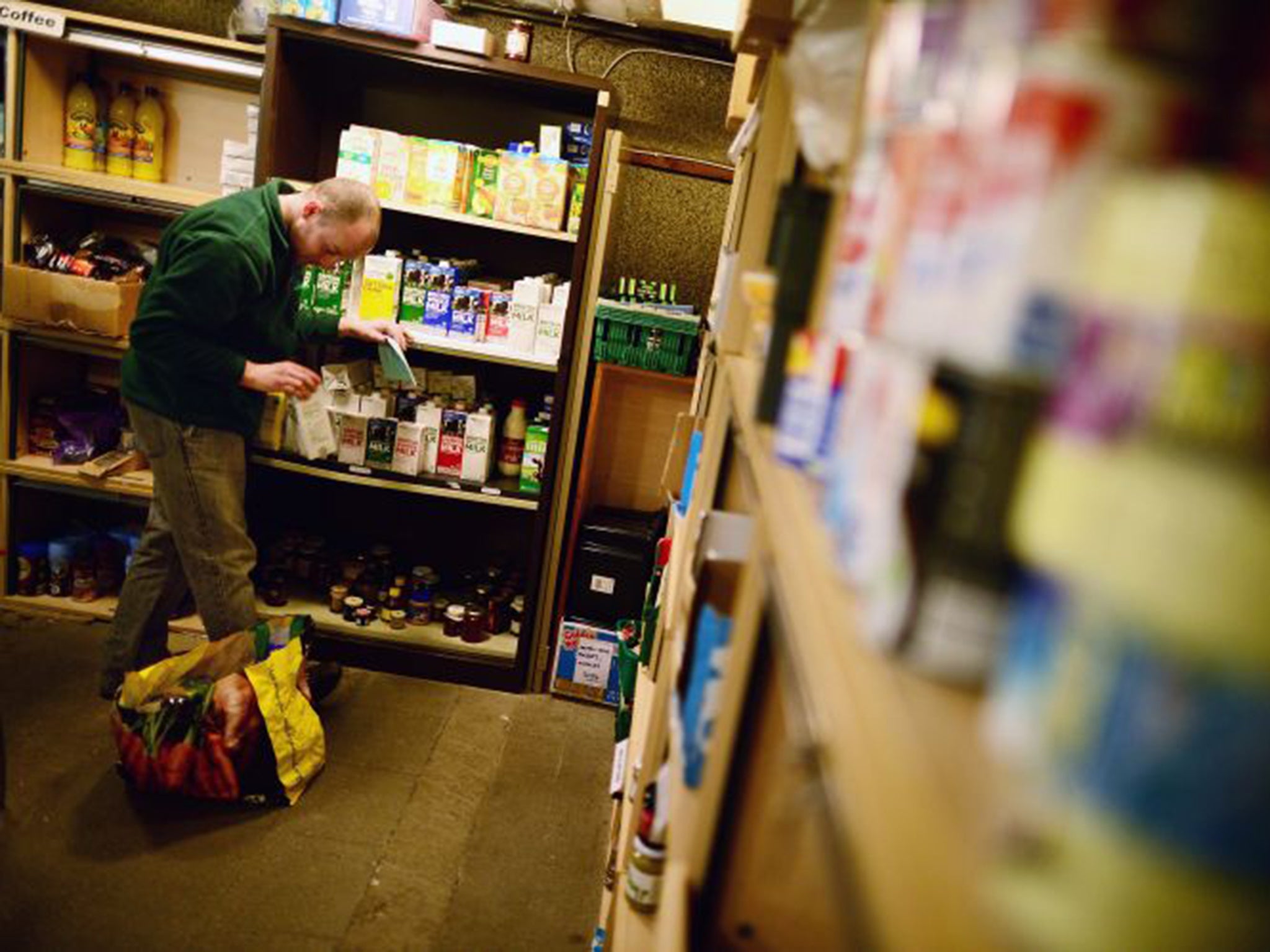Lord Prior of Brampton: Conservative peer criticised for claiming 'paradox' in rise of food banks during obesity crisis
'It is a strange situation around the world that we have both a problem with obesity and an issue with nutrition as well'

Your support helps us to tell the story
From reproductive rights to climate change to Big Tech, The Independent is on the ground when the story is developing. Whether it's investigating the financials of Elon Musk's pro-Trump PAC or producing our latest documentary, 'The A Word', which shines a light on the American women fighting for reproductive rights, we know how important it is to parse out the facts from the messaging.
At such a critical moment in US history, we need reporters on the ground. Your donation allows us to keep sending journalists to speak to both sides of the story.
The Independent is trusted by Americans across the entire political spectrum. And unlike many other quality news outlets, we choose not to lock Americans out of our reporting and analysis with paywalls. We believe quality journalism should be available to everyone, paid for by those who can afford it.
Your support makes all the difference.A Conservative health peer has been criticised after claiming there was a “paradox” between the increasing use of food banks by people at a time when obesity in the country is rising.
Lord Prior of Brampton, Minister of NHS Productivity, was speaking in a House of Lords debate, during which he insisted there was no link between changes to benefits and the emergence of food banks in some hospitals.
The 60-year-old added: “It is also a paradox, isn’t it, that we have this issue with food banks at a time when obesity is one of the biggest threats to the future.
“It is a strange situation around the world that we have both a problem with obesity and an issue with nutrition as well.”
The peer’s comments came under fire from Labour’s Lord Cashman who told Lord Prior that some people in the UK are starving.
“I would point out that food banks result because people are going hungry. People are starving in this country and should not have to rely on such charity.
“Would he not agree with me that obesity often occurs with people on very meagre budgets who have to have the worst kind of food in order to feel satisfied?”

The Archbishop of Canterbury, Justin Welby, also took issue with the minister’s claim that there was no link between benefit changes and some people’s reliance on food banks.
“Our experience in the Church of England, involved in the vast majority of food banks across the country, is that between 35 per cent and 45 per cent of people coming to get support from food banks report that the reason they are running out of food is to do with changes to the benefits system and sanctions,” the Archbishop said.
To which Lord Prior replied: “I think the issue is much more complex than the Right Reverend prelate is suggesting.”
Last month, Tameside Hospital in Greater Manchester announced that a permanent food bank was to be set up in its A&E - believed to be the first of its kind in the UK - to enable staff to discreetly offer food parcels to patients.
Staff trained in spotting the symptoms of malnutrition had noticed more and more patients were showing signs.
The Trussell Trust charity has said that between April and September this year, its foodbanks gave out 506,369 three-day emergency food supplies to people in crisis - compared to 492,641 in the same period last year.
It has said that benefit delays and changes remained the biggest cause of people using foodbanks.
David McAuley, chief executive of the charity – which has more than 420 foodbanks across the country – welcomed the Government’s U-turn on tax credit cuts in this week’s Spending Review.
“Whilst we welcome this important decision on tax credits, it is essential that future policy decisions on welfare – for example on Universal Credit – also take into account the important of ensuring that people on low incomes have enough to make ends meet,” Mr McAuley said.
“There are too many young people facing hunger in the UK and it is vital that politicians and policy makers across all parties listen to the voices of people on low incomes to understand their needs, and then create policies that help the poorest.”
Work and Pensions Secretary Iain Duncan Smith announced last month that job advisers had been posted in a food bank in Manchester as part of a trial which could be rolled out across the country.
According to the 2014 Europe Obesity League, the UK had the second highest level of obesity in the whole continent - with 24.7 per cent of people aged 15 and over found to be obese here. Romania had one of the lowest rates, with 7.9 per cent.
Join our commenting forum
Join thought-provoking conversations, follow other Independent readers and see their replies
Comments